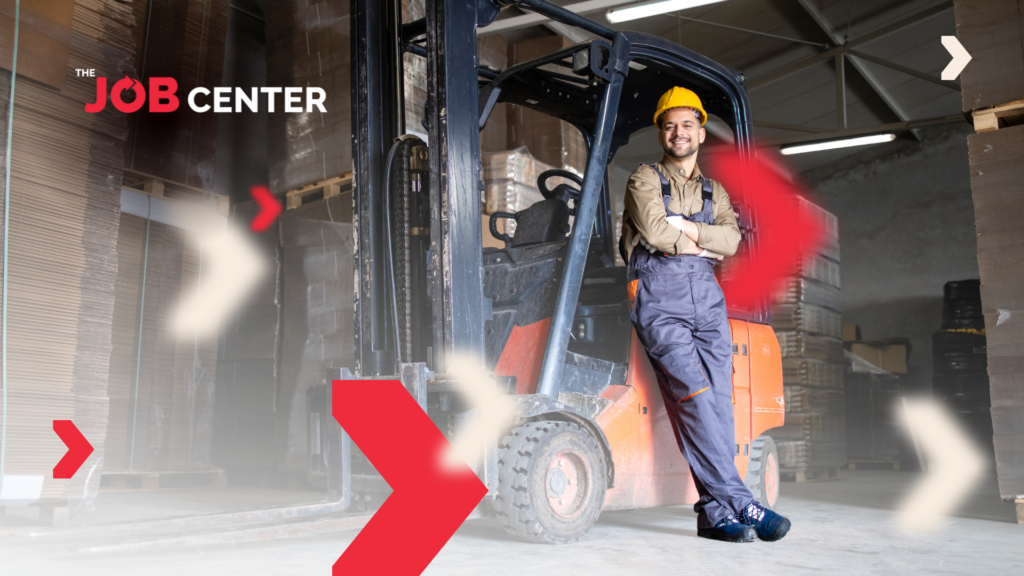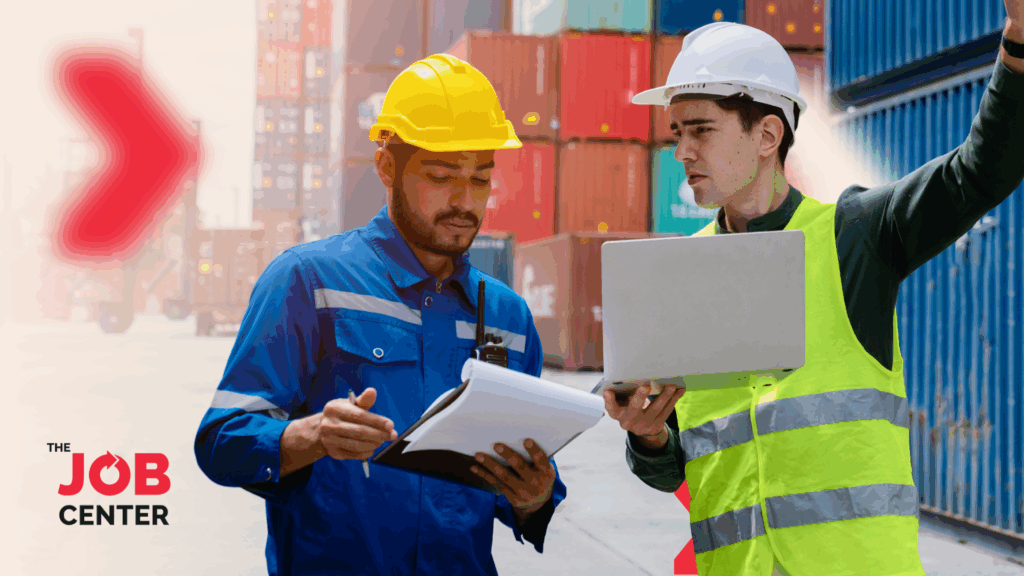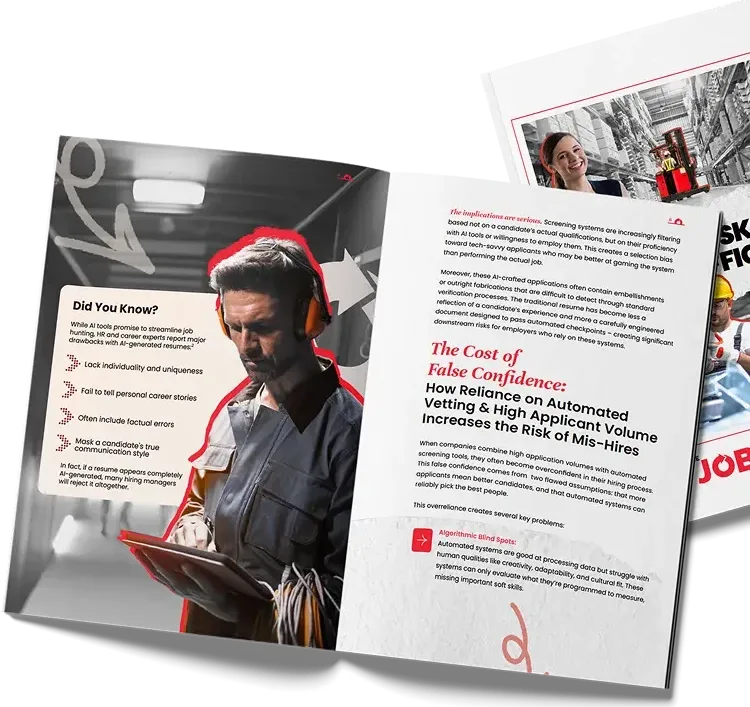The Ultimate Step-by-Step Guide to Acing Your Forklift Job Interview and Landing the Role
Operating forklifts is not a simple task. Whether you’re only starting to explore this job or may have some experience in the past, operating a forklift requires substantial knowledge. Aside from certifications and credentials, you need to demonstrate your experience, safety awareness, and problem-solving skills to impress your recruiters.
In this blog, we’ll help you prepare for your next interview and land a role as a forklift operator. We’ll cover common interview questions, test preparation, and key traits employers look for forklift operators.
Common Forklift Operator Interview Questions and Answers
If you’re looking for a forklift operator role, here are some forklift job interview questions to help you prepare for your next job application.
1. What are your experiences in operating a forklift?
Like any other profession, it’s crucial to position yourself as a knowledgeable worker who has enough experience in the role. Use specific examples and scenarios from the past. List the kinds of forklifts you know how to operate and the work environments you have worked in. Include any training and certifications in forklift operations.
Read more: Resume Dos & Don’ts
2. What are your safety measures when operating a forklift?
This one is crucial as it ensures that you know how to operate a forklift without endangering yourself or those around you. Simply knowing how to operate a forklift differs significantly from operating one safely. So, be prepared. Even if you know the basics of operating a forklift, refresh your memory on the safety protocols.
Share your understanding of forklift safety and explain the procedures you follow. Include basic practices like wearing a seatbelt, using hand signals, or verifying the load capacity before loading to ensure safety.
3. What is the load capacity, and how do you determine the appropriate weight?
This question might be asked to determine whether you understand load capacity and limitations. Explain your procedure and how you determine a load’s weight before lifting. Share the measures you take to ensure you don’t exceed the load capacity.
4. Have you ever been in an accident? How did you manage the situation?
Accidents are inevitable. The only thing you can do is prevent and minimize them. After all, even experienced workers can make mistakes. The key is to be prepared in case it happens and follow procedures during emergencies.
If you made errors in the past, be honest with your experience. Tell the recruiter how you handled the situation and the steps you took to prevent it from happening again.
5. How do you maintain a forklift?
This question tests your knowledge of forklift upkeep. Be sure to mention routine maintenance procedures, including checking fluids, inspecting tires, testing brakes, and looking for leaks. Show that you understand the importance of regular checkups and following safety guidelines. The more specific you are, the better!
6. How do you maintain communication with your coworkers when operating a forklift?
Another interesting interview question centers around your communication and teamwork while operating a forklift. It’s vital to maintain constant communication to prevent any errors or accidents. You should elaborate on your hand signals, communication techniques, and best practices when loading or unloading using a forklift.
7. How do you handle stress and pressure?
Manufacturing and warehousing frequently come with their own set of challenges. You need to assure recruiters and employers that you’re prepared for these kinds of working environments and can be resilient during tough times. You can talk about how you manage stress like taking a walk, resting and taking breaks, or talking to key personnel in the office like your supervisor or coworkers.
8. How do you perform and prioritize multiple tasks, especially on a tight deadline?
Delays on the production floor can have various consequences in manufacturing. Be prepared to talk about your time management and resourcefulness. You can talk about your strategies for prioritization and how you allot resources to each task. You can also delve deeper into how you structure your day-to-day routines or schedules to make sure you finish your work on time.
Preparing for a Practical Forklift Test
When looking for forklift operator jobs, it’s important to familiarize yourself with the basics of using heavy machinery. Initially, you’ll need to obtain OSHA certification from an OSHA-authorized training provider. You can take these courses online or visit an OSHA-authorized training provider for hands-on instruction.¹
Review Technical Skills
Practical tests can be daunting. However, operating a forklift is somewhat similar to learning how to drive—with a few additional practices to ensure safety and compliance. Here are a few things you need to keep in mind:
- Wear your seatbelt
- Use the turn signals
- Maintain appropriate speeds
- Be careful when passing ramps or any obstructions
- Slow down and observe your surroundings when traveling through intersections
- Implement loading protocols to ensure safety
- Maneuver loads and forklifts correctly
- Take your time when unloading products or equipment
- Park in designated areas
Know How to Maintain and Operate Your Forklift
Aside from the usual skills needed as an operator, you must also equip yourself with the best practices and understanding of operating a forklift. Here are a few that you need to apply in your day-to-day operations:
- Follow timely maintenance and proper operation according to the manufacturer’s manual.
- Stay within the maximum load capacity of the forklift and don’t exceed it.
- Understand the stability triangle of the forklift to maintain balance.
- Replenish fuel and recharge batteries regularly.
- Know the differences between various forklifts and how they work.
- Prepare for dangers and possible risks in the working environment.
- Stay alert around areas where pedestrians walk regularly.
Showcase Key Traits that Employers Value in a Forklift Operator
As a final note, a forklift operator position is not only about technical skills and understanding of the environment and safety. It’s equally crucial to adopt the right soft skills to ensure a more sustainable career. Here are a few transferrable or soft skills that you can focus on to succeed in the role:
1. Reliability
While your job will center on operating a forklift, there might be other tasks that you need to do. This might include loading, unloading, inventory management, cleaning, maintenance, or assisting coworkers with logistics and paperwork. Recruiters look for reliable workers who can perform different tasks and learn new ones if needed.
2. Safety Awareness
One of the main skills you need to develop is safety awareness and always following protocols. The industry is prone to accidents, and using heavy equipment requires precautions to avoid risks. This will not only protect you and your coworkers but also allow you to succeed in the role.
3. Teamwork
Since the job will spend hours on labor, it’s important to build relationships with your coworkers. This not only ensures a healthy work environment but also fosters collaboration needed to work efficiently and effectively.
4. Attention to Detail
It’s important to be aware of your surroundings, guidelines, and procedures at all times. Ensure that you’re loading products properly and that loads don’t exceed the weight limit. Operating a forklift masterfully is necessary, especially in tight spaces.
5. Communication Skills
As we mentioned, it’s necessary to learn how to communicate when using a forklift. The production floor can be loud. Learn to use hand signals to maintain constant communication.
6. Time Management
As an operator, you have to prioritize tasks, especially during tight deadlines. The production floor can be very busy, and reducing downtime can significantly impact your work and schedule.
7. Adaptability
The production floor will require you to adjust in different areas like warehouse layouts, forklift models, work conditions, or new safety regulations. There may also be instances where you’ll need to rush orders or find solutions when equipment fails. The key is to adapt to these circumstances and find solutions that would help minimize disruptions, ensuring a constant workflow.
8. Stress Management
The production floor can be stressful and exhausting, especially when meeting deadlines. It’s important to know how to handle your stress professionally while remaining focused on safety and following protocols.
Read more: The 8 Emotional Stages of the Job Search
Ready to answer forklift test questions? Find work with The Job Center.
The Job Center has been placing skilled workers and talented individuals across 11 states since 2007. We understand what candidates look for at work, and we provide them.
Join our growing list of satisfied employees. Learn more about our open roles today!
Reference
- “OSHA-Authorized Online Outreach Training Providers.” US Department of Labor, https://www.osha.gov/training/outreach/training-providers
About
Joey Stoller
Other articles





